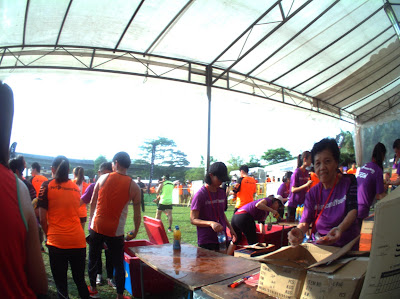
Dear Dr Gwee Li Sui,
Congratulations on your article about Singlish in The New York Times on May 13.
 Congratulations, too, on the Prime Minister’s press secretary, Ms Chang Li Lin, responding to your article on Monday.
Congratulations, too, on the Prime Minister’s press secretary, Ms Chang Li Lin, responding to your article on Monday.In her letter to the editor, she said you were making “light of the Government’s efforts to promote the mastery of standard English by Singaporeans”.
Wow, a letter from the PM’s press secretary. I’m jealous. For my column, all I get is hate mail from Adam Lambert fans.
As one of my editors used to say: “I don’t care if people hate you as long as they read you.”
Sure, but I bet he has never been called an “ignorant asshat” by an angry reader.
At least you, Dr Gwee, are being read by a higher class of people — not that Glamberts aren’t high-class people. (I’m terrified of them.)
The last time a Singaporean made such an impact at The New York Times was in 2014, when cartoonist Heng Kim Song was accused of being racist for depicting the country of India as a turbaned mustachioed man with a cow.

Way to keep the Singapore flag flying high at the Old Grey Lady!
But the reason I’m writing to you is that I am worried about you, doc.
Reacting to Ms Chang’s letter, you wrote at various times on Facebook:
- “Alamak.”
- “Kena marked liao lor.”
- “Uncle kena buak gooyoo :(”
- “Sigh. Why must so mee siam mai hum?”

I’m here to reassure you that everything will be okay.
You see, I’ve been there. I’m a survivor of the Great Singlish War of 1999.
As you wrote in your NYT article, that was the year “the country’s late great statesman Lee Kuan Yew declared Singlish ‘a handicap we must not wish on Singaporeans.’”
Back then, I was the executive producer (and a scriptwriter) of Phua Chu Kang Pte Ltd.

The popularity of the Singlish-infused sitcom 17 years ago engendered a debate over language much like the one that’s raging today but even more intense.
And we didn’t even have the Oxford English Dick to back us up then.
Be thankful that all you got (so far) was a letter to the editor from the PM’s press secretary.
What we got was an epic lecture from then PM Goh Chok Tong during his National Day Rally speech about how PCK was leading the youth of Singapore astray.

He said:
“One of the problems MOE (Ministry of Education) has getting students to speak standard English is that the students often hear Singlish being spoken around them, including on TV.And that’s just an excerpt.
“So they learn wrong ways of speaking.
“Teachers complain that their students are picking up catchphrases like ‘Don’t pray, pray’ and using them even in the classroom.
“The students may think that it is acceptable and even fashionable to speak like Phua Chu Kang...
“So in trying to imitate life, Phua Chu Kang has made the teaching of proper English more difficult.”
I thought the show would be cancelled and banned by the Government.
Worse still, someone warned me that there could be a knock on my door late one night and I would never be heard from again.
Paranoid much?
 As Gurmit Singh, who played Phua Chu Kang (and still does for hire), recently recalled:
As Gurmit Singh, who played Phua Chu Kang (and still does for hire), recently recalled: “PCK was brilliant and won all sorts of awards…But the TV series lasted another eight years by sending PCK for English lessons, making it Singapore’s longest running sitcom. And Gurmit didn’t have to flee the country.
“Then one parent wrote, saying something like ‘I don’t appreciate this, my child is talking like PCK, something has to be done.’
“Boom, that was it. I thought I had to pack my bags and migrate.”
Looking back, I realise Mr Goh’s speech was, in a way, a blessing in disguise.
For years after that, any discussion about the Government’s policy on Singlish had to namecheck Phua Chu Kang.
This helped PCK transcend from being a mere sitcom character to a national icon — which in turn helped Gurmit pay for a Lamborghini.
You don’t see Tan Ah Teck from Under One Roof in Madame Tussauds, do you?
Phua Chu Kang and his yellow boots probably wouldn’t be in the wax museum if not for the Singlish controversy.
And now it’s your turn.
Because of Ms Chang’s letter, any discussion about the Government’s policy on Singlish will henceforth have to namecheck Dr Gwee Li Sui.
You have essentially become the new Phua Chu Kang, thanks to the Great Singlish Skirmish of 2016.
And you don’t even need a wig or a fake mole.
I can’t guarantee you’ll get into Madame Tussauds, though.
Well, at least not without buying a ticket.
And if you get extremely lucky with your Toto QuickPick buy, you could have a Lambo too.
Do pray, pray.
Regards,
SM Ong
- Published in The New Paper, 29 May 2016





























































